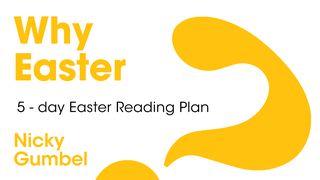30 Days in the PsalmsSýnishorn

Day #19: Psalm 91
Psalm 91, the second psalm in Book IV of the Psalter, is a well-known passage of hope and comfort for God’s people during difficult times. The most interesting and comforting aspect of this psalm is that it is not words of prayer from the people to God. This psalm is God’s word to his praying people, God’s voice offering them promises and reminders. There’s no human attribution to this psalm (no “of David” or “of Asaph” or “by the Korahites”). Verse 1 is a direct address to God’s people. Even though the speaker is not identified immediately, by the end of the psalm, it’s clearly God who speaks in the first person (vv. 14–16). Psalm 90 ended with a petition for God’s favor—perhaps the blank space on the page between Psalm 90 and Psalm 91 represents the people’s silent waiting after making their request—and God speaks into their silence!
The action in this psalm is mostly God’s, rather than human behavior. At the very beginning (vv. 1–2), the human choices are summed up as dwelling with God, abiding in his presence, and trusting him. God’s responsive actions on their behalf bring deliverance, covering, and shelter (vv. 3–4). This makes possible a life free of anxiety and fear (vv. 5–6), a life of victory (vv. 7–13). All the things that were fear-producers in Israel’s day—war, plagues, violence, fierce wild beasts—are rendered powerless by the mighty and merciful presence of God with them.
In verses 14–16, God speaks in the first person to those who love him and trust him—notice how relational this conversation is. All the things that God had narrated in the third person (“he will do” or “the Lord will”), he now affirms in a series of “I will” promises. “I will rescue them. I will protect them. I will answer them. I will be with them. I will honor them. I will reward them. I will give them my salvation.” These words from the heart of God, spoken into the heart of his people, make this psalm feel like the warm embrace of a loving father, infusing security, peace, and hope into the life of his trembling child.
If prayer is always only our talking, when will we hear the voice of the God who responds? Today is a good day to sit in silence before the loving God who longs to speak to you!
Ritningin
About this Plan

Most of Scripture is God’s Word to human beings, but the Book of Psalms records human speech to God. These prayers and songs demonstrate the determination of people of faith to remain connected to God, regardless of their circumstances. Confession, lament, pleading, thanksgiving, praise—all the elements of our communication with God are present. The 150 Psalms in the collection are divided into 5 “books.” During these 30 days, we’ll pray through 6 psalms from each book. Some will be very familiar, others perhaps less so; all will direct our gaze to the God who loves us.
More








